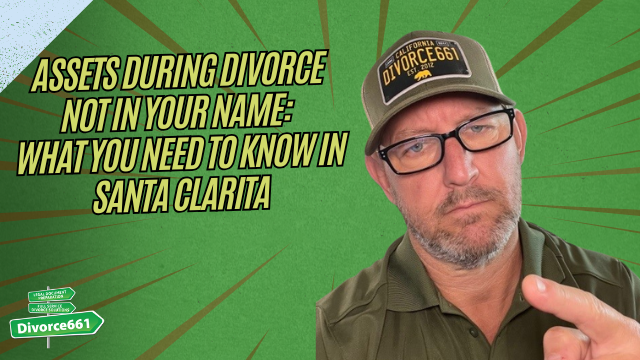What Happens If Your Spouse Hides Assets During Divorce?
Divorce is challenging enough without the added stress of financial deception. When one spouse hides money, property, or other assets, it undermines the fairness that the legal process is supposed to guarantee. In California, transparency during divorce is not just expected—it’s the law. Tim Blankenship of Divorce661 breaks down what happens when a spouse conceals assets, the legal consequences involved, and how you can protect yourself from financial fraud during this difficult time.
Understanding Asset Disclosure in California Divorce
Both spouses are legally required to fully disclose all assets, debts, income, and expenses during a divorce in California. This comprehensive disclosure covers everything, including:
- Bank accounts
- Retirement funds
- Real estate holdings
- Investments
- Cryptocurrency
- Collectibles and other valuables
Failing to disclose any asset is considered fraud by the court, and the repercussions can be severe. The legal system views hiding assets as a serious breach of trust and fairness, and courts are empowered to impose strict penalties to uphold justice.
What Happens if Your Spouse Hides Assets?
If you suspect your spouse is concealing assets, you have several tools at your disposal to uncover the truth. Some of the effective steps include:
- Requesting detailed financial records
- Issuing subpoenas for bank statements and other documents
- Hiring a forensic accountant to trace hidden income or property
When intentional nondisclosure of an asset is proven, the court can penalize the offending spouse by awarding 100% of the hidden asset’s value to the other spouse. This serves as both a remedy and a deterrent against hiding assets.
Real Client Story: Exposing a Hidden Bank Account
At Divorce661, we helped a client who suspected her husband was hiding money in a separate bank account. By carefully comparing financial disclosures and bank statements, we uncovered inconsistencies that confirmed her suspicions.
“She brought this to the court’s attention, and the judge awarded her the full amount from the hidden account plus attorney’s fees.”
This case illustrates how vigilance, combined with expert guidance, can protect your financial interests even when trust has broken down.
How to Protect Yourself from Hidden Assets During Divorce
Financial deception can feel overwhelming, but you don’t have to face it alone. Here’s how to safeguard your interests:
- Stay Informed: Know that all assets, income, and debts must be disclosed by law.
- Be Proactive: Don’t hesitate to request detailed financial documents early in the process.
- Seek Expert Help: Forensic accountants and experienced divorce attorneys can spot red flags and uncover hidden assets.
- Use Legal Remedies: Courts have strong tools to penalize fraudulent behavior and ensure equitable settlements.
Why Choose Divorce661 for Your Divorce Journey?
At Divorce661, we specialize in guiding clients through complicated financial situations with calm, knowledgeable support. Our flat-fee divorce services include access to forensic financial expertise, helping you spot red flags and protect your rights.
- Expertise in financial forensics during divorce
- Clear identification of red flags and legal options
- 100% remote services across California
- Support that prioritizes fairness and transparency
If you believe your spouse may be hiding assets, don’t wait until it’s too late. Taking swift action can make a significant difference in your divorce outcome.
Take the Next Step: Uncover the Truth and Protect Your Settlement
Divorce is hard enough without financial deception clouding the process. If you suspect your spouse is hiding assets, reach out for a free consultation at Divorce661.com. We’ll help you uncover what’s hidden and ensure your divorce settlement reflects the full truth—not deception.
Remember, fairness in divorce starts with transparency. Don’t let hidden assets tip the scales against you.










